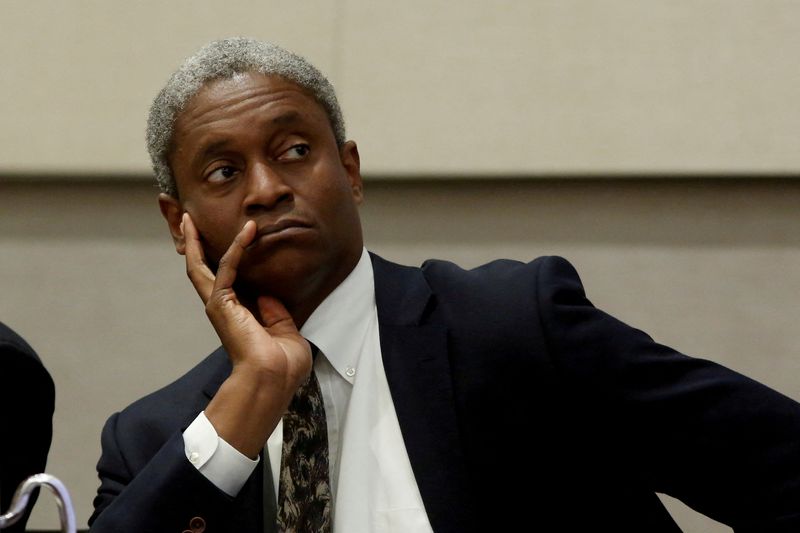By Howard Schneider
WASHINGTON (Reuters) - The Federal Reserve should not raise interest rates further or it would risk "needlessly" sapping the strength of the U.S. economy, Atlanta Federal Reserve President Raphael Bostic said on Wednesday in written remarks and a subsequent interview arguing officials need to wait longer for the impact of previous rate increases to be felt on the economy before moving higher.
"My baseline is that we should stay at this level for the rest of the year," and not cut rates until the latter half of 2024, Bostic said in an interview on Yahoo Finance.
In a published essay earlier in the day he said "if we simply press on with additional rate hikes, we could needlessly drain too much momentum from the economy."
"I think we are in a place where we should let the hard work the (Federal Open Market) Committee has already done work its way through the economy and see if it continues to bring inflation closer to our goal," Bostic said.
"Letting restrictive policy work for a while is prudent because the policy has been truly restrictive for less than a year, and it takes time for monetary policy changes to meaningfully influence economic activity. We have good reasons to expect our policy tightening will be increasingly effective in coming months."
Bostic's remarks highlight the emerging debate at the Fed over when and if to raise rates further after deciding last week to leave the overnight federal funds rate unchanged for the first time since March of 2022. Over 10 consecutive meetings the policy rate was increased a full five percentage points, to a range between 5% and 5.25%, before Fed officials decided to skip the June session and take stock of what was happening in the economy.
With inflation still more than double the Fed's 2% target and declining only slowly, policymakers at that meeting said they expected another half point of rate increases this year, with investors betting rate hikes will resume at the central bank's July 25-26 policy meeting.
Bostic is the first official to say explicitly that may be too soon.
He noted that the number of goods subject to high inflation seemed to be shrinking, and that it had only been a few months since policy had become truly restrictive - too soon to gauge what Fed tightening to date means for the economy.

"Policy has been restrictive for only eight to nine months. Therefore, the real economic effects of tighter monetary policy are only just beginning to take hold," Bostic said. "What we don’t know is exactly how responsive our brakes are, how quickly policy will bite more deeply and in turn how quickly inflation will fall."
The risk of waiting is that inflation may resurge, but "that is not my baseline."